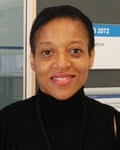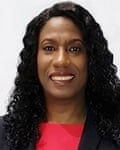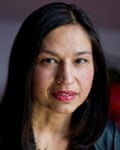The underrepresentation of BAME staff in UK universities is well-documented. Figures published by the Higher Education Statistics Agency in January show that universities employ more black staff as cleaners, receptionists or porters than as lecturers or professors.
According to a report (pdf) from the Equalities Challenge Unit, academia can be a challenging environment for BAME staff. They describe feeling under greater scrutiny, and say that they have to work harder to prove themselves, are less likely to be encouraged to go for promotion, and are less often successful in applications for promotion when they do apply.
Nicola Dandridge, former chief executive of Universities UK, said of the report: “We recognise that there is a serious issue with the lack of black representation among senior staff in universities. We need to acknowledge and nurture the talent of our BAME academics, and encourage those who have left to return.”
A new book, Inside the Ivory Tower, reveals the experiences of BAME female academics working in UK academia, and explore what their encounters of racial and gendered inequality mean for the profession. Here we provide some excerpts.
Josephine Kwali
Senior lecturer at Coventry University and course director of the social work undergraduate degree

During my school years, I never saw a black teacher, nor was I taught about a single black historian, scientist, inventor or writer. Being “black” was the rationale for the teachers’ low expectations. I recall being told by my primary school head teacher that “people like me” would never be anything more than average. When I asked what he meant by “people like me” the response was “look in the mirror, I would have thought it was obvious”.
My journey into the higher education sector cannot be disconnected from the schooling I received and the subliminal messages I absorbed about who I was and what I might go on to be. University was not even a word in my vocabulary when I left school at 16. I still consider myself to be an accidental academic and I am not entirely at ease with being one. By the time I walked into a British university I was a mother and in my 20s. Having now worked in the higher education sector for 12 years, I am thankful that I was shaped by an earlier career in social work and by different experiences and struggles.
There is no apparent incentive to address the ethnic profile of staff or doctoral students in a university culture driven primarily by the targets that contribute to league table status or funding success. When questions are asked about the number of black academics there is tendency to lump together both internationally recruited academics and home staff, regardless of the black and racialised groups from which they originate. This approach masks the inequalities that exist between different ethnic groups and subverts challenges from black academics as to why they are underrepresented.
Elizabeth Opara
Head of the department of applied and human sciences and an associate professor in the faculty of science, engineering and computing at Kingston University, London

For as long as I can remember I have loved science in all its simplicity and its complexity, although I have always been aware that my race and gender have affected the way in which I am perceived by others – culturally, politically, sexually and socially. As a scientist and academic, I never saw myself as being different from the norm. I believed I belonged because we, my fellow scientists and I, all had one thing in common – a love of science – a love that I believed made us equal.
In late 2004, a promotion opportunity at my university arose in field leadership, which came with a principal lectureship. Two people went for the post – me (the internal applicant) and an applicant from another institution. They offered the post to my competitor – a white man.
My disappointment and frustration gave way to anger and also confusion. I had interviewed well, or so I thought, and the academy is all about meritocracy (is it not?). There were only two obvious reasons left as to why I was not offered the job and why I received virtually no feedback: my race and my gender. In subsequent discussions with family and close friends, the words that I had heard as a five-year-old came up time and time again: “you have to be 10 times better”. This experience left me contemplating leaving science altogether.
But subsequent experience as a mentee afforded me new clarity, since my mentor’s academic progress to professor was not via the route taken by many stem academics – undergraduate degree to PhD to post-doctoral to lecturer. I had been blinded by a belief that there was only one way to progress, by adapting to the norms of the science environment, and that the recognition from important others was crucial to my self-recognition. I am now a scientist who gives back by focusing on my students’ academic ambitions rather than my own. My fear, disillusionment, dented self-esteem and lack of direction dissipated and I found my voice as a black woman scientist.
Deborah Gabriel
Senior lecturer at Bournemouth University in the Faculty of Media and Communication and director of the Black British Academics network

During my first year of teaching, I became the object of racist and sexist discourse exchanged between a group of white students on Facebook, three of whom were women. Their online conversation, during which they referred to me by my race and gender in animalistic and graphic sexual terms, took place during my class, where they laughed openly, though at the time I was unaware I was the brunt of their jokes.
While their actions enraged me, I also felt a profound sense of disappointment – not least because I had willingly gone to great lengths to support some of those very students when they had come to me for additional assistance with their work. Their behaviour demonstrated not just a profound lack of respect for me as their tutor, but also spoke to their rejection of me as a human being worthy of respect.
The support and encouragement of my sibling sisters have been vital components of my survival as an academic through the most challenging times. Throughout my journey, I have also maintained close sister relationships with fellow women of colour academics and these are immensely important. One relationship in particular is with a beloved friend, colleague and associate. We engage in weekly discussions when time permits, during which we share and analyse our experiences as sisters, daughters, aunts, mothers, wives and, importantly, as black women academics.
Heidi Safia Mirza
Professor of race, faith and culture at Goldsmiths, University of London

When I was appointed professor of racial equality studies, the first chair of its kind in Britain, a white male professor leaned in to me at the celebration drinks and whispered bitterly in my ear, “Well, they are giving chairs to anyone for anything these days.” His so-called white hurt sees equality for people of colour as an unfair social advantage rooted in policies of political correctness. The underlying belief now is that those who are really discriminated against are the displaced white majority.
It allows self-doubt to creep in late at night, “Is that what they are really thinking? Am I a case of special pleading, no more than a politically correct appointment made under the cosh of the dreaded draconian institutional equality and diversity policies?” Nagging self-doubt is not an easy burden to bear in the competitive space of higher education.
The very arrival of the black/othered body into white/normative organisations is used as evidence that spaces of whiteness and privilege no longer exist. Visual images of colourful happy faces are used to show how the university has embraced difference. My happy face appeared on the front of the university’s website – even though every week I asked for it to be taken down, it still kept popping up! My hard-won achievements, books, lectures and awards were claimed and appropriated as a sign of the university’s diversity and, hence, success.
Yet there is a double-take as you enter a room, as if you are not supposed to be there. You are noticed and it is uncomfortable. Like walking into a pub in a town where you don’t live. There is confusion, as you are not the natural expected occupant of that role. I know this well; in many meetings, even though I am a professor, I have been mistaken for the coffee lady. Even now, students do a double-take when they realise I am the expert professor taking the class.
Join the higher education network for more comment, analysis and job opportunities, direct to your inbox. Follow us on Twitter @gdnhighered. And if you have an idea for a story, please read our guidelines and email your pitch to us at highereducationnetwork@theguardian.com.
Looking for a higher education job? Or perhaps you need to recruit university staff? Take a look at Guardian Jobs, the higher education specialist

Comments (…)
Sign in or create your Guardian account to join the discussion